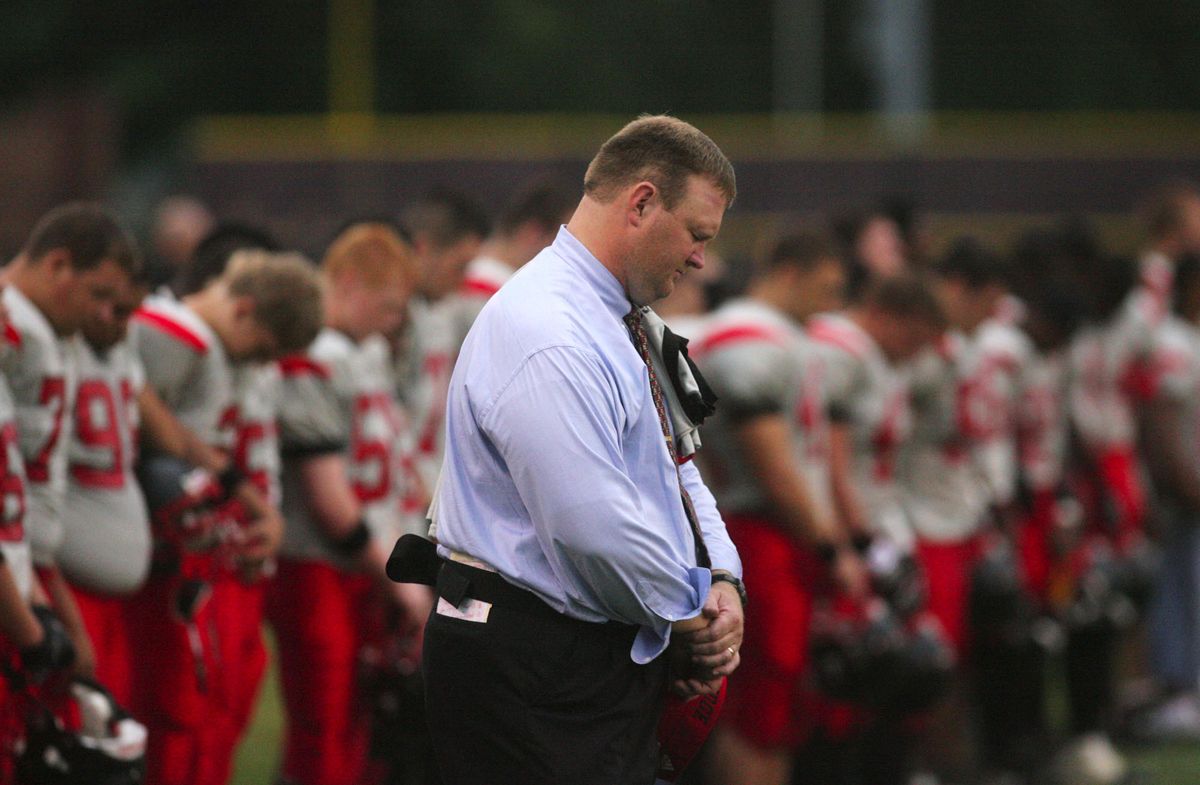Athletic community weighs in on national tragedy

The Super Bowl may be the end of the 2008 football season, but the first play of the 2009 season is under way.
A Kentucky high school coach pleaded not guilty Monday to reckless homicide in the heat-related death of a 15-year-old player who died during an August practice.
“The criminal part is a new twist on this,” John Miller, assistant executive director for the Washington Interscholastic Activities Association, said Monday. “We don’t know where it is going to go. Every state association, every athletic director in the country, is going to watch this one and see where it heads.”
A grand jury indicted David Jason Stinson last week in the death of Pleasure Ridge High School offensive lineman Max Gilpin.
Miller, the former activities director at Mt. Spokane, was at the National High School Federation football rules meeting in Indianapolis last week and the Kentucky case was a hot topic of conversation.
“Our due diligence is to protect athletes in the best manner we’re capable of and if we’re not doing that we’re not doing our job,” he said. “This is the first case anyone is aware of the coach being charged criminally. This is a football story but a catastrophic injury can happen in any sport.”
Lewis and Clark coach Tom Yearout said, “I’ve read a little bit about it. When I saw the heat index was 94, I was obviously concerned. I don’t know everything yet. I guess I felt horrible for both sides.”
Asked about his reaction to the criminal aspect, Yearout said, “Trepidation.
“It’s a precedent that makes you reconsider everything you do when it’s hot out. … It opens the doors in a lot of medical areas.”
Brandon Walsh, coach at Almira/Coulee-Hartline, said, “It just makes you more aware of the legal ramifications, I suppose. As far as what I do as a coach, it won’t change much. I’ve always been one that’s a proponent of hydration. If it’s hot, kids perform better if they’re hydrated.”
As for criminal charges, he said, “That kind of thing is a scary thing. I’m sure it’s something that will be brought up, if not at a state-wide level, at least at the local level. We don’t have a trainer on staff. We’re all first-aide certified. When we go through those first aid classes, especially the last couple of years, hydration, heat stroke, have been points of emphasis. We try to be careful.”
Gilpin’s divorced parents filed suit against the coaching staff, according to an Associated Press story out of Louisville, accusing them of negligence and “reckless disregard.”
According to the mother, her son had taken Creatine, a dietary supplement used to help build muscle mass, but had stopped several months before football practice started.
The story also stated Gilpin was one of six people to die because of the heat in high school and college athletics in 2008.
Post Falls coach Jeff Hinz said, “ … As a coach conditioning athletes you have to be aware. … You have to use good judgment.”
Miller said guidelines are being formulated to cover as many dangerous situations as possible, not just dehydration. That includes concussions, lightning and sudden cardiac arrest.
“The first and foremost obligation we have is the safety of the kids,” Miller said. “This creates a scary situation for coaches. You have to get beyond fear factor, ‘Am I going to be charged with a crime?’ and focus on, ‘Am I protecting the kids?’ ”
“It does makes you stop and think, while I am coaching, what else could happen I might be held responsible for?” Yearout said.
“Obviously, a young person dying during athletics is tragic, but I am sure this man has given a lot to his school and community and now will be known for something completely different which does not seem quite right either.”